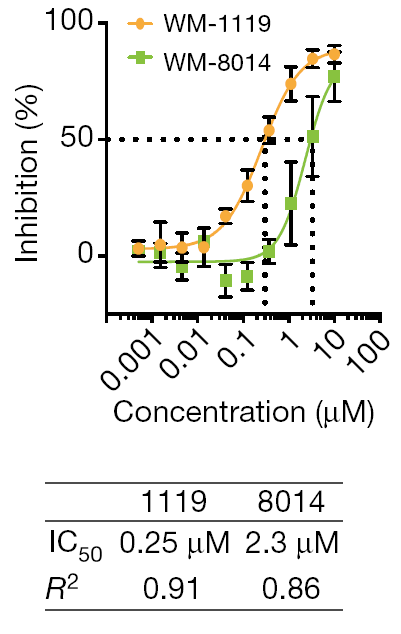WM-1119 |
| Catalog No.GC18154 |
A highly potent, selective KAT6A/B inhibitor
Products are for research use only. Not for human use. We do not sell to patients.

Cas No.: 2055397-28-7
Sample solution is provided at 25 µL, 10mM.
Target: lysine acetyltransferases, KAT6A(MOZ), KAT6B(MORF/QKF)
WM-1119 induces cell cycle exit and cellular senescence without causing DNA damage. Senescence is INK4A/ARF-dependent and is accompanied by changes in gene expression that are typical of loss of KAT6A function. WM-1119, which has increased bioavailability, arrests the progression of lymphoma in mice
Data:
Treatment with WM-1119 arrests lymphoma growth.
Growth inhibition assays of Eμ-Myc lymphoma cell line EMRK1184 treated with WM-1119 and WM-8014 at the doses indicated.

KD(KAT6A)=0.002μM KD(KAT5) = 2.2μM KD(KAT7) = 0.5 μM
References
1. Baell JB, et al. Inhibitors of histone acetyltransferases KAT6A/B induce senescence and arrest tumour growth. Nature. 2018 Aug;560(7717):253-257.
Average Rating: 5 (Based on Reviews and 15 reference(s) in Google Scholar.)
GLPBIO products are for RESEARCH USE ONLY. Please make sure your review or question is research based.
Required fields are marked with *




















